Federally Required Plans
Regional plans help guide individuals, organizations, and governments to make policy and budget decisions based on a collective, agreed-upon vision for the region’s future. As a regional body representing local governments throughout the greater Des Moines area, the MPO regularly coordinates and facilitates regional planning efforts. Additionally, the MPO supports and assists other regional plans developed by partner governments and organizations.
-
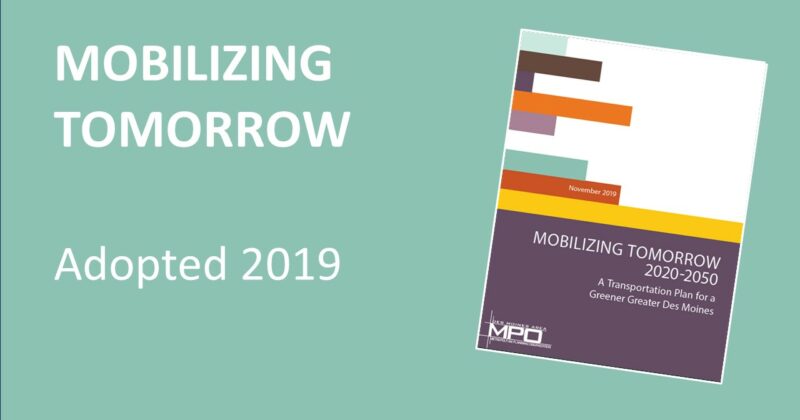
Mobilizing Tomorrow
Mobilizing Tomorrow is the MPO’s long-range transportation plan for the year 2050 and outlines how the MPO’s member communities, Iowa Department of Transportation, and DART will invest approximately $8.1 billion in transportation funding over the next 30 years.
-
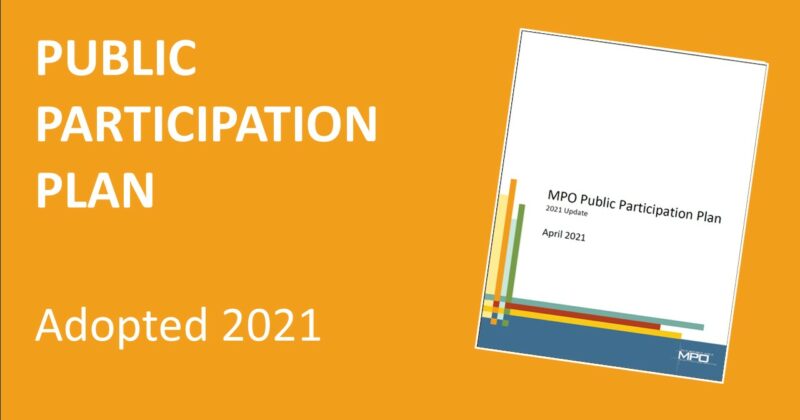
Public Participation Plan
The Des Moines Area Metropolitan Planning Organization (MPO) provides a continuous, cooperative, and comprehensive (3-C) transportation planning process for greater Des Moines metropolitan area.
-
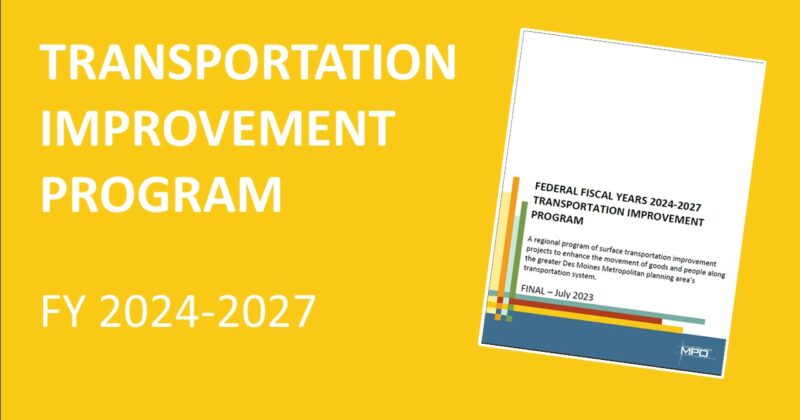
Transportation Improvement Plan (TIP)
Transportation projects receiving federal funding in the Greater Des Moines area are tracked and documented by the Des Moines Area MPO.
-
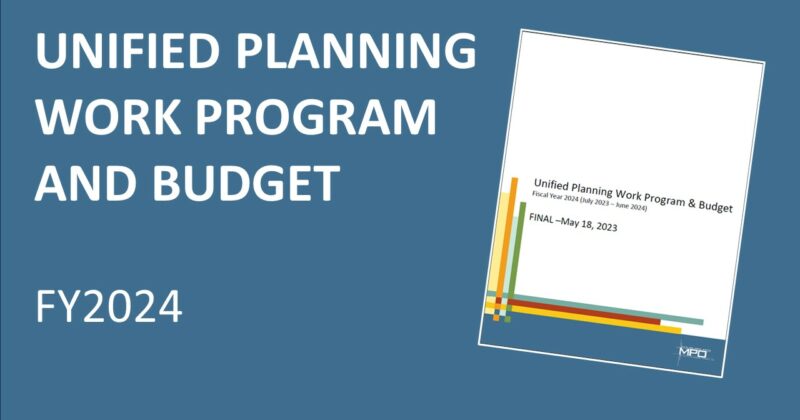
Unified Planning Work Program & Budget
The Unified Planning Work Program and Budget (UPWP) is the Des Moines Area MPO’s work plan for the fiscal year.
Other Regional Plans
Regional plans help guide individuals, organizations, and governments to make policy and budget decisions based on a collective, agreed-upon vision for the region’s future. As a regional body representing local governments throughout the greater Des Moines area, the MPO regularly coordinates and facilitates regional planning efforts. Additionally, the MPO supports and assists other regional plans developed by partner governments and organizations.
-
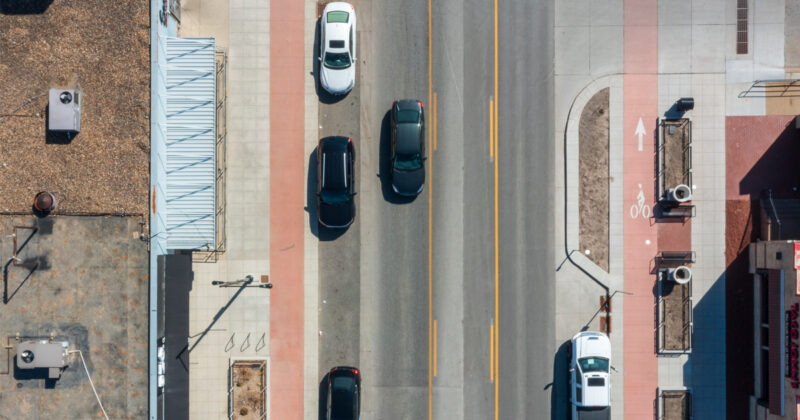
Comprehensive Safety Action Plan
The Comprehensive Safety Action Plan, once complete, will outline action steps to reduce deaths and serious injuries from the transportation network.
-

Water Trails
The Greater Des Moines Water Trails and Greenways Master Plan was adopted by unanimous vote of the MPO Policy Committee in November 2016. The water trails plan provides the region a road-map for enhancing citizen experiences in and along the 150 miles of waterways in Greater Des Moines.
-

The Tomorrow Plan
The Tomorrow Plan is a forward-thinking plan for the sustainable development of the Greater Des Moines region over the next 40 years.
Planning Projects
MPO projects are special initiatives and programs taken on by the Des Moines Area Metropolitan Planning Organization to further the collaboration among local governments and meet regional goals established in Mobilizing Tomorrow and The Tomorrow Plan.
-
Best Practices
The Des Moines Area MPO researches best practices in regional planning. The best-practice reports are meant to inform community leaders and MPO member governments on the range of tools available for meeting the performance measures established in Mobilizing Tomorrow.
-

Central Iowa Climate Toolbox
The Central Iowa Climate Toolbox was created with the intent of connecting decision-makers, professional staff, and the general public directly to diverse sources of information they may need as communities and organizations take action on climate issues.
-
Complete Streets
The Des Moines Area MPO developed a complete streets policy template in 2015 that can be adopted by local governments throughout Greater Des Moines. Since that time, five new complete streets policies have been adopted bringing the total to nine policies…
-
Container Locator
Container Locator is a web tool designed to improve the efficiency of the intermodal freight transportation network, lower costs of shipping by intermodal container, and ultimately benefit the end consumer by lowering the costs of delivering goods. Click here to…
-
Iowa Data Bike
The Iowa Data Bike is an initiative by the Des Moines Area MPO in partnership with the Iowa Department of Public Health and the Iowa Natural Heritage Foundation. Using an app that senses the roughness of pavement, the Data Bike…
-
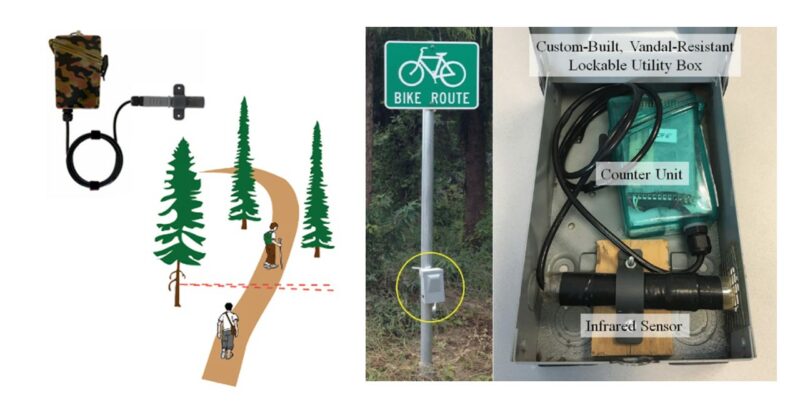
Trail Counter Program
The Des Moines Area MPO operates a Trail Counter Program to collect usage data on the paved trail network in Central Iowa, which aids the region in planning for the maintenance and growth of the network.
Past Projects
Past initiatives of the MPO are retained here as a reference and resource.
-
2020 Census Boundaries PSAP
The 2020 Census PSAP process has been finalized and closed for the MPO area in March 2020. For additional inquiries, please contact the MPO staff at 515-334-0075. The 2020 Census Participant Statistical Areas Program (PSAP) allows local governments, following Census…
-
Congestion Management Process
The Congestion Management Process (CMP) provides the Des Moines Area MPO and its members governments with a process for the effective integrated management and operation of the multimodal transportation system. This strategy is based on a cooperatively developed and implemented…
-
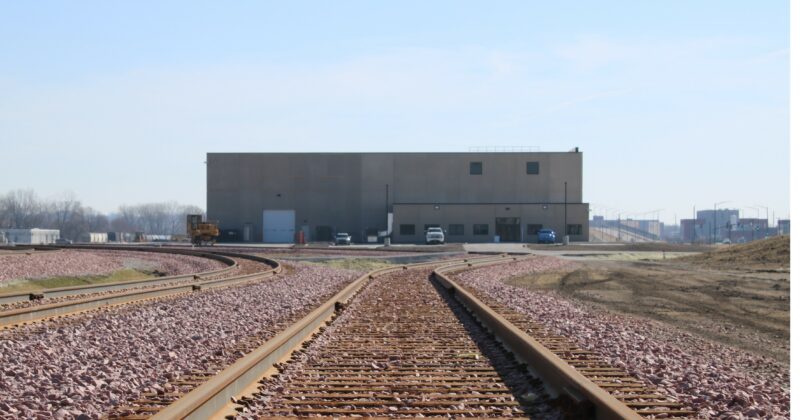
Transload Facility
The Des Moines Area MPO spent years planning for the now-open transload facility, which has strengthened the connection between the region’s trucking and rail freight networks.
